A stress test year for the euro area
Ralitsa Kovacheva, January 21, 2011
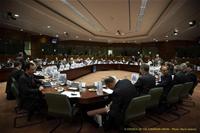 The first meeting of EU finance ministers - for this year and the first under the Hungarian presidency - ended with no fundamental news, but rather with some indicative guidelines for future intentions. Two main issues were discussed during the meeting - conducting a new set of bank stress tests and increasing the rescue fund for the euro area.
The first meeting of EU finance ministers - for this year and the first under the Hungarian presidency - ended with no fundamental news, but rather with some indicative guidelines for future intentions. Two main issues were discussed during the meeting - conducting a new set of bank stress tests and increasing the rescue fund for the euro area.
Regarding stress testing, although there is little specifics yet, the 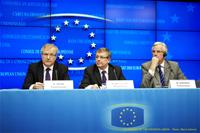 consensus is a fact. According to commissioners Olli Rehn (Economic and Monetary Affairs) and Michel Barnier (Internal Market and Services), the finance ministers have agreed on the basics, which are: the stress tests to cover the same (91) banks as last year, these to be more rigorous and better organised, go further than last year in terms of sovereign risk and liquidity and this time to ensure “total transparency”, after the words of Commissioner Barnier.
consensus is a fact. According to commissioners Olli Rehn (Economic and Monetary Affairs) and Michel Barnier (Internal Market and Services), the finance ministers have agreed on the basics, which are: the stress tests to cover the same (91) banks as last year, these to be more rigorous and better organised, go further than last year in terms of sovereign risk and liquidity and this time to ensure “total transparency”, after the words of Commissioner Barnier.
Last year's tests were strongly criticised for being neither sufficiently severe, nor sufficiently public. As a result, Irish banks, for example, although they had passed the tests, had to be "rescued" by the state with an amount of 50 billion euro and another 130 billion euro from the ECB. According to Commissioner Rehn, last year's methodology was good, but there were "weaknesses" in the way some national regulators carried the 2010 tests out. So, this year the European supervisory authorities will monitor compliance at a national level. In addition, the newly established European Banking Authority will organise parallel testing of liquidity.
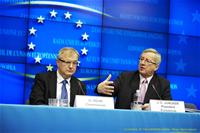 Stress testing should be carried out until July, and the preparations are already under way. Timing was a subject of a joke between Commissioner Rehn and the President of the Eurogroup, Jean-Claude Juncker. Olli Rehn, a Finnish, predicted that the tests would take place between the winter and the spring, and Juncker pointed out that we should have in mind the duration of the Finnish winter.
Stress testing should be carried out until July, and the preparations are already under way. Timing was a subject of a joke between Commissioner Rehn and the President of the Eurogroup, Jean-Claude Juncker. Olli Rehn, a Finnish, predicted that the tests would take place between the winter and the spring, and Juncker pointed out that we should have in mind the duration of the Finnish winter.
In any case, the deadline is the first half of the year and the results will be announced in the second half. Some time ago Commissioner Olli Rehn criticised the way the publication of the tests results took place - they were announced late on a Friday evening, and the event was broadcast live online on the website of the Committee of European Banking Supervisors, CEBS. The obvious aim was financial markets to "digest" the news before they reacted on Monday morning, but Olli Rehn said that in the future another way should be used, which to be more convenient for all.
It is also important such testing to give a reliable answer and if some weaknesses are detected, opportunities for reorganisation and restructuring to be at hand, Commissioner Barnier reminded. Brussels has already begun consultations on a European framework for crisis management in the financial sector, which is expected to be completed in March, to enable the Commission to make a legislative proposal.
The situation is far more unclear regarding the rescue fund for the euro area 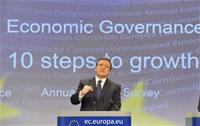 (the European Financial Stability Facility, EFSF). Most surprisingly, the Commission announced that it wanted the financial capacity of the EFSF to be increased and the scope of its activities to be widened. On top of it, this wish was noted in the Annual Growth Survey, presented in Brussels on January 12th. The news came unexpectedly against the background of the resistance against such intentions of some member states, including France and Germany, clearly expressed in the end of last year. According to the German magazine Der Spiegel, Chancellor Angela Merkel was far from pleased with Jose Manuel Barroso's actions. The European Commission President was trying to regain the lead in managing the crisis in the euro area after he was apparently displaced by France and Germany, the article said.
(the European Financial Stability Facility, EFSF). Most surprisingly, the Commission announced that it wanted the financial capacity of the EFSF to be increased and the scope of its activities to be widened. On top of it, this wish was noted in the Annual Growth Survey, presented in Brussels on January 12th. The news came unexpectedly against the background of the resistance against such intentions of some member states, including France and Germany, clearly expressed in the end of last year. According to the German magazine Der Spiegel, Chancellor Angela Merkel was far from pleased with Jose Manuel Barroso's actions. The European Commission President was trying to regain the lead in managing the crisis in the euro area after he was apparently displaced by France and Germany, the article said.
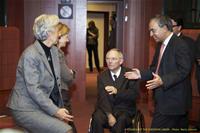 German Finance Minister Wolfgang Schauble commented evasively, that there was no urgent need the issue to be resolved immediately. But according to Der Spiegel, Germany's opposition is not as strong as before. Ahead of the Eurogroup meeting on January 17th, consultations were held among the six eurozone countries with triple A credit rating on the issue of increasing EFSF's capacity. Although, in theory, it can provide financing of up to 440 billion euro, the actual lending capacity is only 250 billion because of the need of a capital buffer for maintaining the highest credit rating AAA of its financial instruments.
German Finance Minister Wolfgang Schauble commented evasively, that there was no urgent need the issue to be resolved immediately. But according to Der Spiegel, Germany's opposition is not as strong as before. Ahead of the Eurogroup meeting on January 17th, consultations were held among the six eurozone countries with triple A credit rating on the issue of increasing EFSF's capacity. Although, in theory, it can provide financing of up to 440 billion euro, the actual lending capacity is only 250 billion because of the need of a capital buffer for maintaining the highest credit rating AAA of its financial instruments.
The Commission and Member States are differing also over the deadlines for the changes of the temporary rescue fund. Barroso insisted a decision to be taken at the European Council in early February. Commissioner Olli Rehn argued that the debt crisis was not over and there was no room for complacency, so the decision to increase the rescue fund should be taken quickly. He described the discussions among the finance ministers on the subject as "encouraging and constructive."
According to the President of the Eurogroup, Jean-Claude Juncker, however, it is 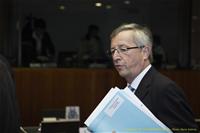 more likely to expect a decision at the European Council in March, where the finance ministers have to present their vision for the permanent rescue fund for the euro area - the European Stability Mechanism. It certainly makes sense to discuss the changes in the current, temporary fund in parallel with the type of the future, permanent fund, in order to ensure the necessary continuity. Moreover, there are important issues, particularly related to widening the scope of its actions - for instance buying of government debt or recapitalising failing banks.
more likely to expect a decision at the European Council in March, where the finance ministers have to present their vision for the permanent rescue fund for the euro area - the European Stability Mechanism. It certainly makes sense to discuss the changes in the current, temporary fund in parallel with the type of the future, permanent fund, in order to ensure the necessary continuity. Moreover, there are important issues, particularly related to widening the scope of its actions - for instance buying of government debt or recapitalising failing banks.
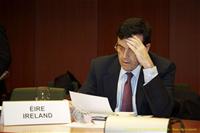 Currently EU officials avoid answering these questions, saying it is too early for such specifics. They also did not comment on whether they talked about reducing interest rates on the loans to Greece and Ireland.
Currently EU officials avoid answering these questions, saying it is too early for such specifics. They also did not comment on whether they talked about reducing interest rates on the loans to Greece and Ireland.
But the fact is that if the ideas to expand the rescue fund's capacity, as well as activity, are implemented, the "healthy" eurozone countries will quite officially carry “the sick-ones” on their backs (as the saying goes). A fact is also that in this case the promise that taxpayers won’t pay for the games of politicians and big investors will prove to be a pure demagogy. At least until countries, subject to rescue, do not show that they have learned their lessons and will start paying their own bills.
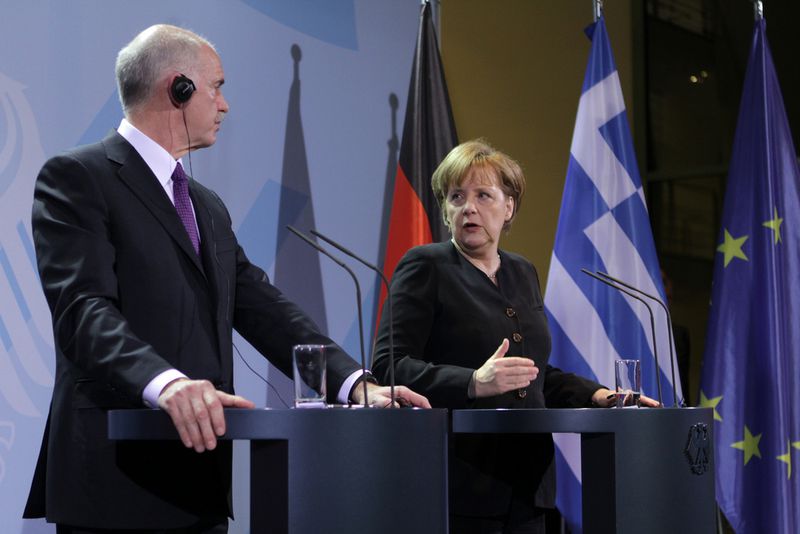 | © www.primeminister.gov.gr
| © www.primeminister.gov.gr | © European Commission- Audiovisual Service
| © European Commission- Audiovisual Service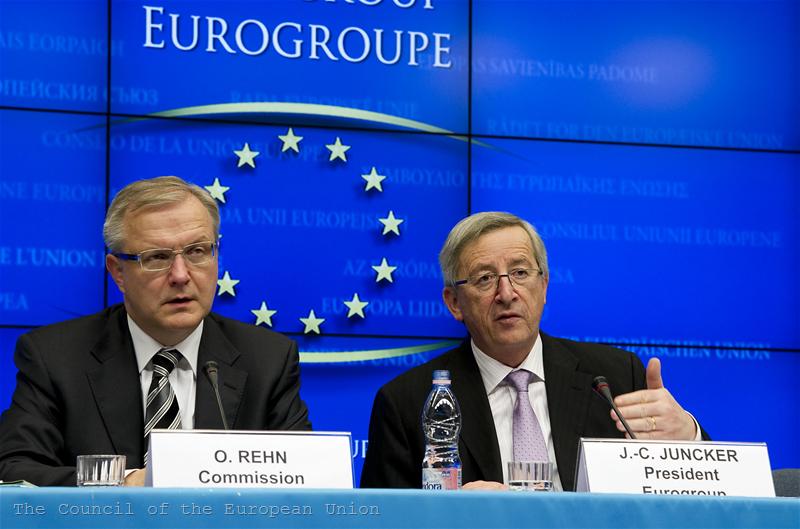 | © The Council of the European Union
| © The Council of the European Union